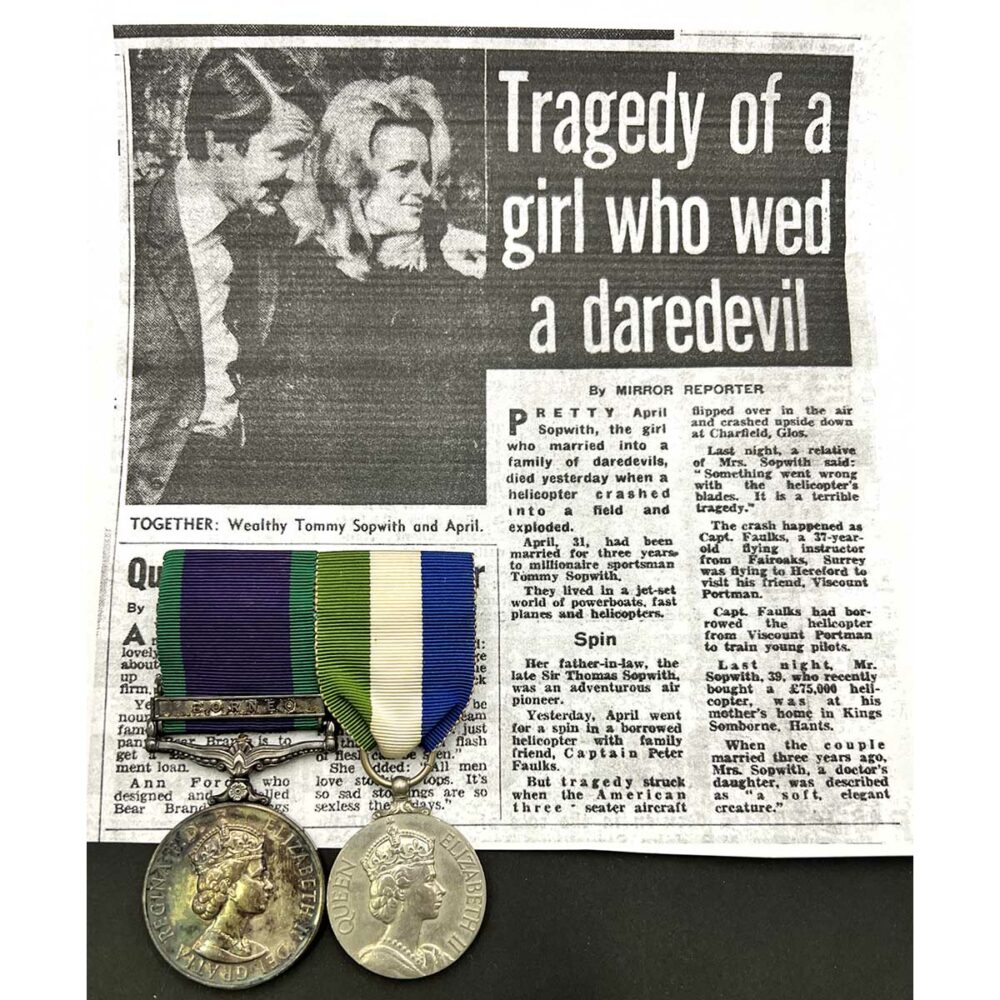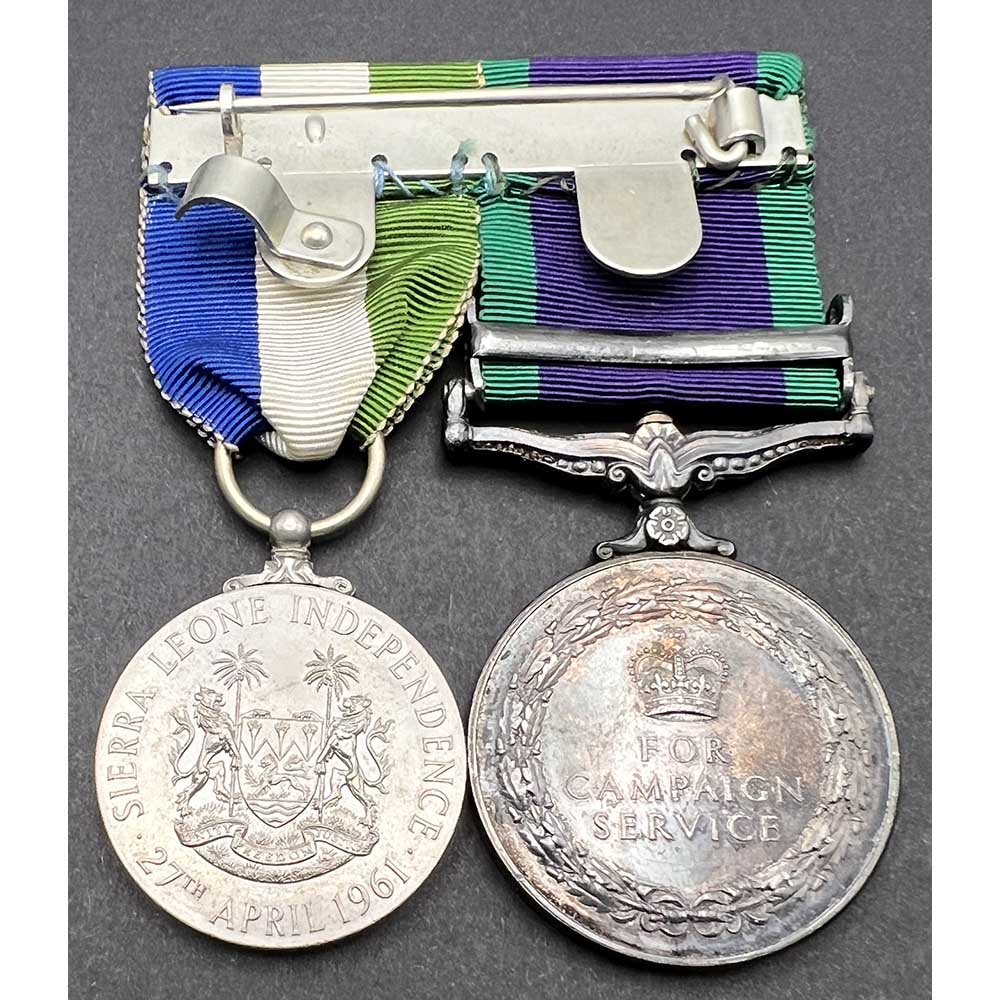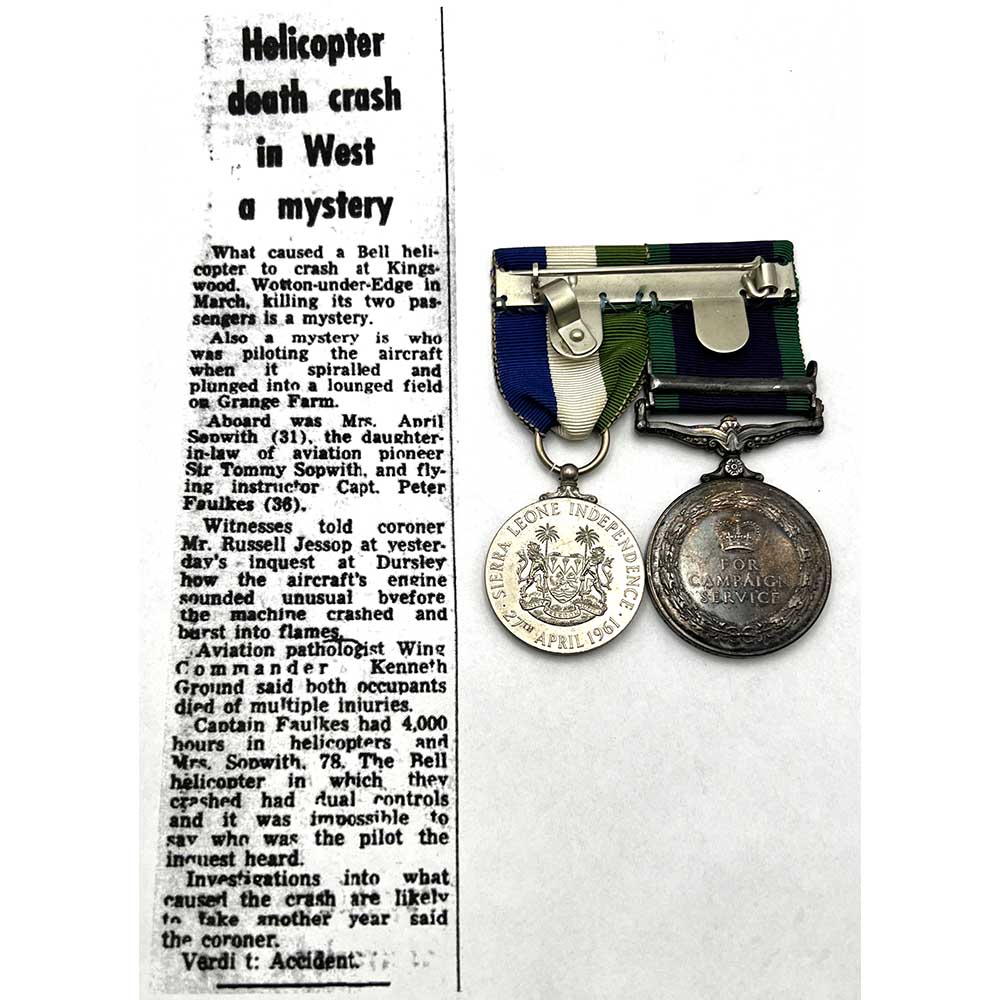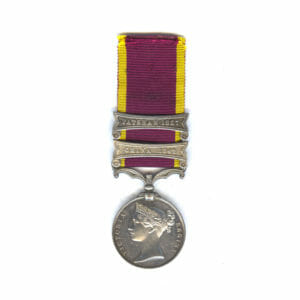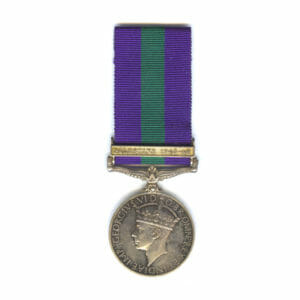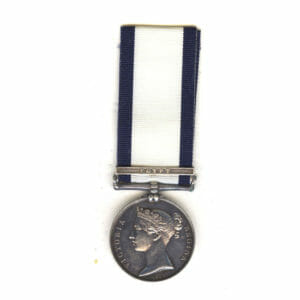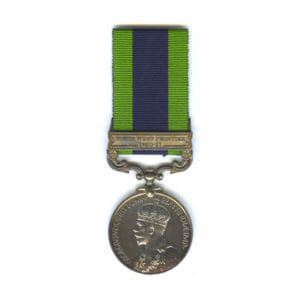Description
General Service Medal, bar Borneo, Sierra Leone Independence Medal 1962, Sub Lieut P.R. Falks, 845 Squadron in the Borneo Jungles, operational helicopter pilot, killed in a Heli crash with Millionaire Daredevil Tommy Sopwith’s Wife. son of Sir Thomas Sopwith, Aviation Pioneer.
GSM, officially impressed: “Sub. Lieut. P. R. Faulks. R.N.”
Sierra Leone unnamed as issued, believed to be earned from his time as a young Army Officer with the Buffs.
The 845 Squadron Aircrew earned the Nickname the “Junglies”, they were in an out of the Jungles on a regular basis, as Lt Faulks himself stated in 1966 “I find I can now land a Wessex in a jungle clearing only 25 feet wide.”
We know that he was operating on attachment to the Royal Marines, dropping them off for operational patrols in the jungles.
845 Squadron is also noted as having dropped off operators of the SAS and they would be frequently going back and forth bringing prisoners back to be interrogated.
A veteran of the campaign, Alan Cole, who was a young 19 year old aircrewmen at the time, reports that flying was rather relaxing affair as it could only be done certain clear times of the day, meanwhile your off duty time was spent in flip flops and a Sarong, taking in the local Tuak rice wine courtesy of the friendly local Iban villagers in their longhouses.
In 1966, Navy News reports that he was placed on a much more difficult posting, going back and forth to the top of a 8000 foot mountain in Sarawak, to assist a small Radio Relay Station who could only live on supplies being flewn in.
Because of the extreme height of the mountain flying was difficult, there was only 1 hour a day where the flying could be done due to the jungle mist, and up at 8000 feet, Faulks had to fight frequently against tremendous down draughts and air turbulence
At the time of his untimely death, Mr Faulks was an extremely skilled and experience Helicopter Pilot, who had 4,000 hours flying time under his belt, since almost 13 years ago he had begun his career as an Operational Helicopter Pilot of the Fleet Air Arm, operating in the Borneo Jungles, honing his flying ability.
Some personal remembrances of Peter, record that he was an very kind and well mannered Officer, he was polite to his Engineers and always remembered and preferred to refer to his men by their first name.
The Helicopter that he was flying, was owned by Viscount Portman, one of the richest men in England, Lt Faulks had struck up a lifelong friendship with him during their time together in the Royal Navy.
Viscount Portman, lent him the Helicopter, which he was using to deliver Flying Lessons to his friends.
On the day of his death, he was on the way to visit Viscount Portman, with Mrs Sopwith as his passenger,
The Kent Messenger, 12th August 1966:
“ROYAL MARINES PROUD OF THEIR TOUGH TRAINING, KENT MEN ARE SERVING WITH DISTINCTION IN THE FAR EAST
PILOT
Lt Peter Faulks, 27, who lived at Hill Cottage, Linton, near Maidstone, for 12 years and attended Sutton Valence School from 1952-6, is a Pilot flying Wessex V Helicopters attached to the Royal Marines
Peter first went to the Far East in 1964 with 846 Squadron where he operated in Borneo flying above thick impenetrable jungle.
‘The training was really good over there,’ he told me, ‘I find I can now land a Wessex in a jungle clearing only 25 feet wide.’ “
The period Navy News magazine of 1966 recalls his work:
“RADIO IN THE CLOUDS
A Small party of British Soldiers who man a radio relay station on top of an 8000 foot mountain in Sarawak, Malaysian Borneo, are entirely dependent on the Fleet Air Arm for everything from food and water to clean laundry.
Wessex Helicopters of 848 Naval Air Squadron flew in the men and equipment to build the station and now the same helicopters are the only live link the soldiers have with the outside world.
For up to 3 weeks at a time the signallers live alone on the mountain top which is covered in cloud practically the whole time.
Although only 4 degrees north of the equator, the weather is so cold that the signallers have to wear special warm clothing.
The Squadron flew in soldiers with tools and explosives to hack out space for a small landing pad and camp. Then heavier equipment, including corrugated iron and timber, was flown in for the building of the Radio Station itself.
Lieut Peter Faulks, R.N. of Ivybridge, said that the weather conditions are so bad that there is perhaps only an hour a day when the thick, damp cloud clears and a helicopter can land.
Because of the height of the mountain there are tremendous down draughts and other air turbulences which call all of the pilot’s skill to land and take off.”
His Personal Life:
Peter Richard Faulks, was born in 21st February 1939 in Kent.
The son of the John Vernon Faulks (1903-1960) and Vivian Frances V. Firman (1908-1988)
He also had an older Brother, Michael John Faulks,
